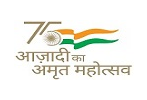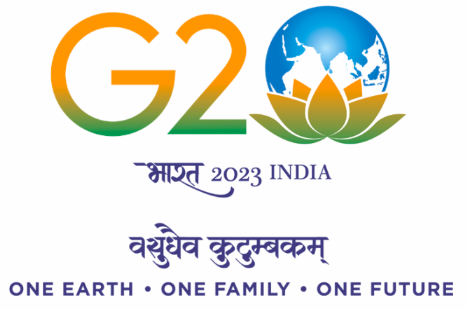A. Process Chemistry
A special feature of the Institute is the Department of Pharmaceutical Technology which has been created with a view to directly interact with industry. The department has a pilot plant associated with it for pilot-scale processing of bulk drugs and natural products. The department has build up facilities for scale up studies during development of technologies for bulk pharmaceutical chemicals and different dosage forms. The department is actively engaged and can collaborate in projects related to the following.
- Process development for enantiomerically pure drugs
- Chemical processing technology for natural products
- Process for conducting eco-friendly reactions involving phase transfer catalysts, ionic liquids as alternate solvent media
- Process for developing anti-diabetic compounds using novel technologies
Processes for the following APIs are available for licensing and other projects that have been completed:
- Mefloquine HCl, Isosorbide-5-mononitrate, Artemether and Artesunate, S-Naproxen & S-Ibuprofen and Dicyclohexylcarbinol
- Process for recycling levo enriched clopidogrel
- Application of phase transfer methods in various production processes
- Process for making chiral unnatural amino acids
- Process for making Escitalopram from racemic citalopram
- Process for making various chiral phase-transfer catalysts
- Synthetic routes for making various tricyclic dual PPAEa/c agonists having antioxidant properties
- Process for making novel 1,4-Naphthoquinones
- Process for making levobupivacaine
- Process for making 2-ethylhexyl 4-methoxycinnamate in ionic liquids
B. Formulations
- Preformulation studies of new molecular entities
- Prototype formulation development and product/process challenge studies on solid and liquid dosage forms
- Solid state characterization of pharmaceuticals
- Generation of polymorphs, pseudo-polymorphs and amorphous form; Characterization using thermal, spectroscopic, crystallographic (powder and single crystal) techniques; Solubility advantage; Thermodynamic characterization - van't Hoff plots; Effect of polymorphism on product performance; solid state transformations during pharmaceutical processing; regulatory implications
- Generation of co - crystals to improve aqueous solubility of poorly water soluble drugs
- High energy amorphous form - Generation; characterization using thermal, spectroscopic, crystallographic techniques; Thermodynamic parameters like enthalpy, entropy, specific heat; Kinetic characterization of the molecular mobility of amorphous systems using enthalpy relaxation studies, cocnept of fragility and fictive temperature; Stabilization of the amorphous systems using anti - plasticizer, specific molecular interactions, crystal growth inhibitors; Solubility advantage of amorphous syetms; Molecular interactions vis a vis stable crystalline form; Devitrification during storage and dissolution stage; Ternary amorphous dispersions to improve aqueous solubility
- Improved powder properties using particle engineering and co-processing of pharmaceuticals; Study of compression behavior; Heckel's plots; Physico - technical properties
- Reverse engineering of generic formulations to - propose quantitative formula, solid state characteristics of the API in the dosage form, information on manufacturing process; Concept of 'formulation equivalence' to develop bio-equivalent generic products
- Improvements of oral bioavailability using lipidic systems
- Intestinal permeability studies and permeation enhancement of drugs using excipeints
- Stabilization of protein drugs during lyophilization
C. Biotechnology
The biotechnology unit of Pharmaceutical Technological Department has been set up with a view to create awareness in the field of pharmaceutical biotechnology. Biotechnology being an interdisciplinary subject and NIPER being an pharmaceutical institute, pharmaceutical biotechnology was thought to be an appropriate subject of teaching and research in this department. The main objective is to pertain training to the students on the different aspects of pharmaceutical biotechnology such as production of high value products though high cell density fermentation, to produce active intermediates through biocatalysis, downstream processing of biomolecules, etc. The unit has taken the initiative to start research activities in the field of biocatalysis to produce enantiomerically pure isomers intended to use as drugs and drug intermediates. The unit runs a full fledged M.Tech. programme in pharmaceutical biotechnology sponsored by the Department of Biotechnology (Govt. of India). The following projects are currently going on
- Production of chiral precursor (S)-1-(2-thienyl) ethanol or (S)-N, N-dimethyl-3-hydroxy-3-(2-thienyl)-propanamine through microbial reduction and their use in the synthesis of chiral drug S (+)-Duloxetine
- Cloning and expression of an acid phosphatase (PHYB) with high phytase activity in yeast
- Purification and characterization of lipase/s for the synthesis of biologically active and enantiomerically pure isomers obtained through enzymatic kinetic resolution of racemates
- Use of nitrilase, a biocatalyst, for the enzymatic kinetic resolution of racemic mixture of pharmaceutically active compounds to enantiomerically pure isomer
| Name |
|---|
| Fazid Ali |
| Himanshu Mishra |
| Pathan Firojkhan Rajekhan |
| Rahul Khyaliram Valmiki |
| Sudipta Baur |
| Sukhendu Pramanick |
| Anupam Das |
| Anupriya |
| Priyanka |




